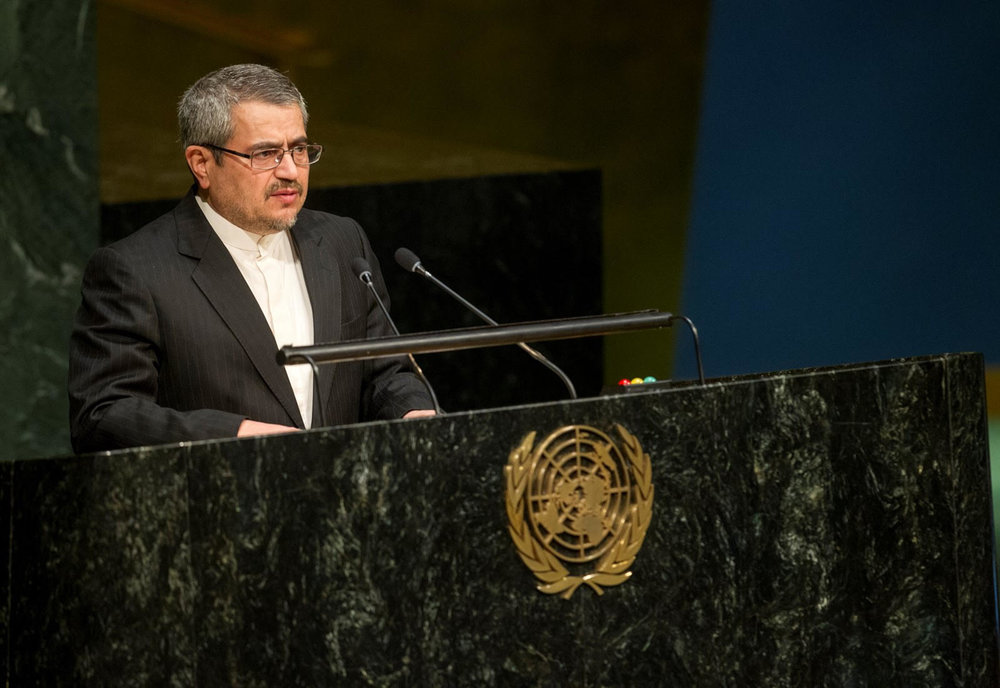Iran’s UN envoy: Missile attack on Daesh was ‘retaliation based on self-defense’

Iran’s ambassador to the United Nations has said that Iran’s missile attack on Daesh strongholds in the Syrian town of Deir al Zour was “a retaliation based on self-defense”.
In an exclusive interview with Press TV aired on Friday, Gholamali Khoshroo said Daesh terrorist attacks in Tehran was planned in Deir al Zour.
The attacks on Iran’s parliament and the mausoleum of Imam Khomeini, the Islamic Republic’s founder, on June 7, left 17 people dead and 56 injured.
On June 18, Iran’s Islamic Revolutionary Guards Corps fired six missiles into the Deir al Zour region of eastern Syria targeting headquarters and gathering centers of Takfiri terrorists.
Gholamali Khoshroo denounces Saudi Arabia’s hostility towards Iran and says that Iran’s regional influence originates from its “wisdom” in dealing with its neighbors rather than its military power.
Elsewhere, Khoshroo slammed Saudi Arabia’s hostility towards Iran and said that Iran’s regional influence originates from its “wisdom” in dealing with its neighbors rather than its military power.
Iran is a “stabilizing factor in the region” due to its contribution to the fight against the Takfiri Daesh terrorist group, he added.
On the contrary, he said, Saudi Arabia has adopted “destructive” policies in the region over the past years through attacking Yemen, helping the emergence of militant groups such as Taliban and al-Qaeda, and supporting Daesh and former Iraqi dictator Saddam Hussein.
“They (the Saudis) are thinking that they are counter-balancing Iran’s influence, but Iran’s influence is not because of its military force, but because of its wisdom on how to deal with its neighbors and radicals in the region,” Khoshroo said.
On Saudi’s now Crown Prince Mohammed bin Salman Al Saud who said in May that the regime “will work to have the battle in Iran rather than in Saudi Arabia”, he said the Saudis are organizing, supporting and providing logistics to some groups following the Wahhabi ideology, but they have been unable to do anything against Iran.
The Iranian diplomat also denounced bin Salman’s statement as against international law and “clear intervention in Iran’s affairs”.
Bin Salman’s remarks showed Riyadh’s support for terrorism and extremism, Iran’s top diplomat to the UN said.
The remarks indicate that “whatever is taking place … under the ideology of Wahhabism has roots in Saudi Arabia in one way or another,” Khoshroo noted.
